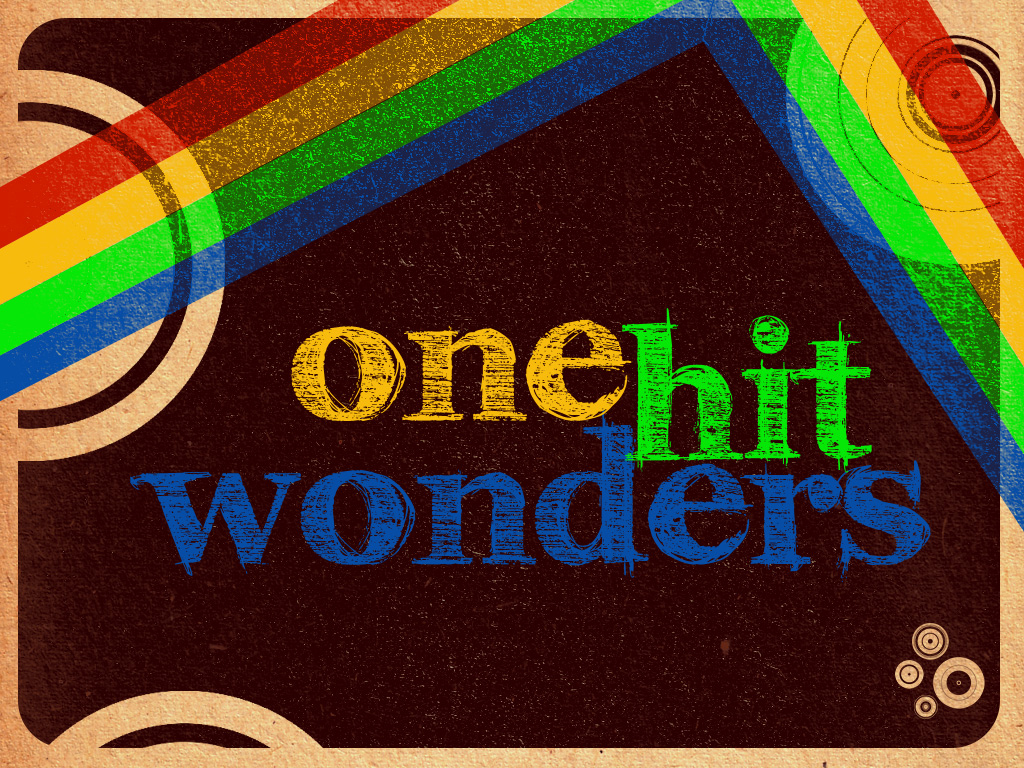I hope that yesterday’s tips (or warnings depending on how you look at them) did not seem like a bucket of ice water dumped over your head. This second half is all about what to be aware of after you have published your book rather than what to be aware of beforehand. I hope they help you in your mission to be the exception (see #1). If you haven’t already, read “The Things You Don’t (But Should) Expect When You Get Ready To Publish Your Book (Part 1)” before moving onto these.
Ready? Then let’s get to it.
6. The quality of your writing and the story are secondary in terms of how well your book does.
This sounds crazy, right? But it is actually the reality of publishing today, even if you self-publish (and it actually is connected with the next two points I go over). Your book needs to be great in order to do well; no one wants to read sloppy writing or boring characters and flat dialogue. So yes, your book still needs to be good. But there are a lot of beautifully written books out there with mediocre sales at best. Why?
If you ask most agents if they would prefer an average book with a fantastic marketing plan or an amazing book without a marketing plan, they won’t likely choose the latter. Everything I have read states this one way or another and I am not surprised because it makes sense (especially after the following points, which I have witnessed firsthand).
A writer’s platform, existing audience and connections, resources and pre-sales buying commitments matter much more than anything else. It does not mean that these things are necessary in order to get published (self-publishing and small presses, etc.) but if you want to get published by a large publishing house then it is very helpful and sometimes essential. A great book without decent marketing will never take off, but a decent book with great marketing will soar to the top of many lists and knows few limits.
7. Be ready to be a ‘people person’ and if you already are, be ready to be an even bigger ‘people person’.
Most writers that I know are more introverted than extroverted. Marketing a book, however, is all about constantly putting yourself out there. Writers need to be proactive about book sales, not only willing to do whatever they are told to do by their publisher (and yes that is a requirement), but also seek out their own opportunities. Big houses don’t put a lot into marketing most of their books, and it is not an agent’s job to promote their clients’ books. That leaves you (more on this with #8).
You need to be able to network with others because sales are all about people. Do readings, book signings, give appropriate lectures and seminars, lead workshops, present at events, teach, and always, always try to sell your book(s) and your brand. You cannot be shy about putting yourself out there or the only thing your book will be good for is collecting dust or staying in someone’s electronic reading queue, remaining unread.
8. Your book will only go as far as you can push it.
This may be the most important point of them all. You are the driving force behind your book. Always. If you are published at a big house, you may have little support and at medium or small houses, limited support because they lack the resources for a grand promotional campaign. And if you self-publish then you should already know it is all on you.
Use what was discussed in #7 and constantly look for new ways to market your book and yourself. Don’t be afraid to contact your friends, peers, relatives and members of organizations you belong to and sell them on your book. They are your natural resources.
Let’s play a numbers game:
I have 600 Facebook friends, all of whom I know personally. I know that half of them will purchase my book when it is published. I am confident that half of the people who purchase it will each tell ten of their friends and out of the people they tell, one third of their friends will purchase it. Out of those people, they will each tell five people and two of those people will purchase my book. I have just sold 3,300 books by utilizing the people I know on a single social media website. Now if my book is terrible, no one will tell their friends about it, which means I will only sell 300 copies. On the other hand, if my book is worthy of a Pulitzer and I don’t tell anyone about it I will sell 0 copies. This is basic math.
The more creative, innovative, determined and persistent you are with your marketing, the more you will sell – period. You are always your greatest sales resource, and in some cases your only sales resource. So, when you get published, start selling those books!
9. Someone is going to hate your book. (Prepare for it, because someone always does.)
If you needed a thick skin before you published your masterpiece, you better prepare to need an even thicker one once you put it out into the world. Readers are brutal. It is not just about their money, but also about their time. In many ways time is far more valuable than a $3 eBook or $16 hardcover. And unlike their money, they can’t get it back!
The funny part about this is that there is nothing you can do and readers do not need to be fair (and most of them aren’t). I am going to use one of my favorite memoirs as an example. “Wild” by Cheryl Strayed is an amazing story, beautifully written prose, both moving and powerful. This book went on to be the first selection of Oprah’s Book Club 2.0, and is a bestseller. If you go to Amazon and read reviews, however, you will find that 200 people (out of over 3,600) rated the book 1 star (about 5% of the total reviews) for various reasons that are utterly ridiculous including: too much profanity, I did not want to read about the author’s sex life (even if it is only a few scenes scattered throughout the book), the author was whiny, she sold out when she became an Oprah book club selection (oh yeah) and how could she try to hike the PCT completely unprepared. You’ll find many of these reviewers admit to not even finishing the book and most of the statements are judgments about the author and her life story, rather than her writing or the book’s merit as literature.
I remember a book I worked on back in 2011, where reviews praised the novel’s characters, dialogue and pacing while a few others said such things were abysmal at best. These negative reviews were the minority and out of dozens of reviews, the book still received a four-star average, but it makes my point. You cannot please everyone and you will drive yourself crazy if you try. You can only put out the best book that you can, and you need to be able to accept that someone is going to hate what you put out there.
(Funny anecdote, the book I mentioned that I worked on earlier had a single reviewer claim the author needed to spend more time editing the novel, without going into specifics. On the other side of it, more than ten people mentioned the quality of the editing including a very influential figure in the literary community. His endorsement landed me free publicity with three different online writing communities and eight referrals that went on to be book clients. How much more time did I need to take? It is important that you do not let these things get to you.)
Readers are not in the business of being fair. They will not only judge your writing and how you tell a story, but the story itself and choices you made (even in fiction, if they don’t like what you do with one of your characters, that can be all that it takes). Remember each reviewer is a single voice and sometimes those voices tend to be unnecessarily nasty. Hopefully, these are only a small minority.
10. Do not expect that once you are published, the next book will be an easier sell. It will actually be more difficult than your debut.
 There are always exceptions to the rule, but at least prepare for the possibility that you are not one of the exceptions. A one-hit wonder is not limited to the music industry. This rule applies more to authors who are trying to go through traditional publishing channels rather than those who are self-publishing again, but for the former it applies to those who originally self-published as much as it does the authors who already went the traditional route. Why?
There are always exceptions to the rule, but at least prepare for the possibility that you are not one of the exceptions. A one-hit wonder is not limited to the music industry. This rule applies more to authors who are trying to go through traditional publishing channels rather than those who are self-publishing again, but for the former it applies to those who originally self-published as much as it does the authors who already went the traditional route. Why?
The success of the author’s previous book means everything if the author’s book went through a traditional publishing house. If the numbers were all right, but not great, publishers will often pass, hoping to find a book or author that they think has the potential to be great. If the author was very successful, then they can often be pigeonholed into a particular type of book or genre. If you wrote a bestselling self-help book and your second book is a science-fiction novel, good luck. In these instances writers can either try to break out of the boxes that the publishing industry wants to package them into or use a pseudonym in which case they are a first-time author all over again.
If an author was self-published before, unverifiable sales and reviews do not matter. Many publishers look down on this (though it is different and more acceptable than vanity presses) and unless you have one heck of a platform ready to purchase your next book (no matter what that next book is), or have won awards, contests or other distinctions for your self-published work it doesn’t really count for or against you. It is the equivalent of a well-known author using a pseudonym to break through the boundaries that have been placed in front of them. If, however, your self-published book did receive special recognition, let the potential pigeonholing begin.
From the research I have done, this does not apply as much to authors who have published several works. This is because their names become the brand, more than their specialty, or they have published different kinds of things that have all done very well. You put in the time and pay your symbolic dues and you have much more freedom and an easy go at publishing your next book (generally speaking).
And there you have it! If you have a handle on these ten things, then you are in better shape than most of the writer getting ready to publish their first book or those who are recently published. One of my favorite clients (yes, I admit, I do have favorites) was also one of the first, after I formed my business. I am going to call her CF. She has since become a friend, but one of the reasons I loved working with her as much as I did, besides her brilliance (she is one of those writers you feel excited about discovering, true talent personified) was her humility and openness. She hired me as her editor because she wanted her book to be better, not because she secretly wanted a proofreader who would fix a few errors and tell her the book was otherwise perfect as is. (Seriously, why do people hire editors just to refuse to do what is needed? It is a waste of money.)
I consider CF my most successful client to date. I don’t know her actual numbers, but I read reviews, author pages and followings and can get a sense from the buzz a book generates and how long that buzz is maintained. Once CF published her novel she made whatever success she found happen for herself. She was realistic about her book yet reached for the stars. She thought of it as a business, down to figuring out what publicity she could do herself and if she could afford any other publicity services. She was open to making the changes I told her were essential and necessary, even when she didn’t want to. One such scene was a confrontation and pay off between two brothers in the last chapter of the novel. The reader had been waiting for Brother A to stand up to Brother B. It needed to happen and the reader needed to see it in an actual scene – implying it was not enough. This additional scene (she did add it) was referenced in some of her most favorable reviews. She told me later, “I am so glad I listened to you!”
She never put me on a pedestal and while I do not believe or know of an error in her finished book I know for a fact she worked on it tirelessly once she received everything back. There were a lot of content edits that she could not simply agree to. She had to address them and she did. The next three tips (#6-8) she did so well, she could teach a course on them! She is a remarkable businesswoman and she made her novel happen down to book reviews in noted publications, reaching bestseller status on Amazon for her genre. (I remember her first telling me about this and my heart swelled with both joy and pride.) She marketed the novel, she thought of new ways to reach out and network and she knew it would be a lot of work, for a long time. And it was. And her efforts paid off.
I don’t actually know of anyone hating her book, at least enough to leave a scathing review, and yes I still check up on reviews periodically and she has yet to write another book. But I can’t wait until she does. Talent like hers, without the ego – now there is the dream client of editors, agents and publishers everywhere.
Remember you are not finished with your book once it is published. In many ways your work is just beginning. Hold tight to these ten tips and make your book happen. Be the exception and then please let me know about it, so I can add it to my reading list!
-DMW










